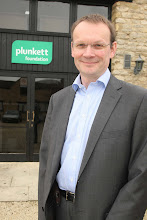Last year saw an important moment for Plunkett and all those who support community co-operatives. It was the year that more communities asked about saving their pub than saving their village shop. Shops continued to show growth, but this overtaking in demand speaks volumes.
It raises the prospect that 2014 could see more Co-operative Pubs opening than Community-owned shops. This isn’t certain. Pubs are harder to save than shops and more attempts fall by the wayside. But we will be doing everything in our power at Plunkett to make it as easy as possible for communities to recognise the role that a pub plays in the vitality of their community and to secure its long term future.
Even more important is the message it sends that community co-operatives are becoming more diverse. Shops are the most common form, but with pub numbers on the rise, alongside cafes and other models, it show that the sector is maturing. To us, the future is one which doesn’t push one solution, be it shops or pubs, but one in which each community can ask “What matters to us round here?” and to then be able to use community ownership to find a co-operative way to secure its future.
+copy.jpg)





